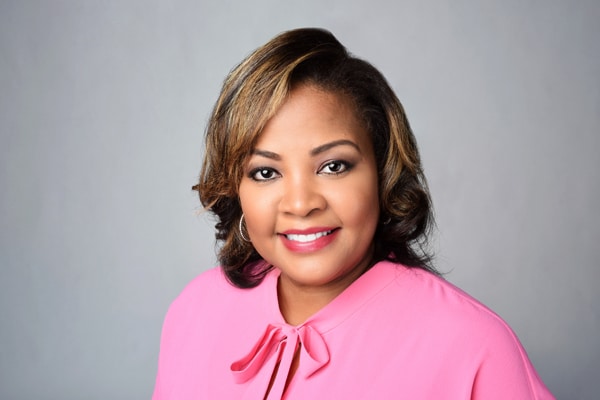
Aflac, the $22.5 billion, Fortune 500 insurance provider based in Columbus, Georgia, had a branch in Tokyo, created at the request of the Japanese government. But, that office became so successful that at one time it generated 75 percent of Aflac’s total business. That caused challenges with both regulators and with administrative functions in the US and Japan.
“We had the world’s largest branch functioning as Aflac Japan; that is not an organizational structure that is ideal to anybody,” says Audrey Boone Tillman, Aflac’s executive vice president and general counsel. The company wanted to turn the branch into a subsidiary, but because of the differences in tax laws, insurance regulations, and administrative matters, multiple efforts to effect the transition “were so problematic, it just never took place,” she says.
Eventually, the legal team was charged with getting it done in a way that would benefit Aflac while satisfying Japanese regulators’ desire to see Aflac Japan operate as a subsidiary. “We didn’t want to be forced to do this,” Boone Tillman says. “We wanted to do it on our own terms.”
Mission accomplished. On April 2, 2018, after eighteen months of work, Aflac Japan was launched as a subsidiary of Aflac Inc.—thanks in large part to the work of Boone Tillman and her team.
That team, comprising experts from multiple departments, including tax, finance, regulatory, legal, and HR, looked for a creative solution that would be fair to both governments. “We wanted to leave Japan and US operations in a position of strength that would be more appropriate in governing structure,” Boone Tillman says. That involved months and months of daily work, integrating various departments in both the US and Japan and discussing and interpreting different regulatory statutes and how to comply “in a creative yet authentic way,” she says. “There were a lot of late-night and early-morning meetings because of the time difference.”
Any plan needed approval from every US state’s department of insurance as well as the Japanese government. “This was a real team effort, by people more often associated with black-and-white issues and not traditionally associated with thinking outside the box—finance people, accountants, and lawyers—but that is what we did,” Boone Tillman says. “It was a labor of love, but it was tough labor.”
An overriding goal was to make any change “invisible” to Aflac staff and its customers in both the US and Japan. “There was no stoppage of work, no regulatory penalty; we were able to continue work as if nothing happened,” Boone Tillman says.
Her wealth of experience is at least partly what helped the transition go so smoothly. She had previously led a project called All Aflac that was designed to bridge the cultural gaps between the two countries. And, after joining Aflac in 1996, one of her early internal clients was human resources, and it taught her a lot about the business as a whole. “I knew next to nothing about HR operationally, but we had a reorganization here, and I was asked to go over and run HR,” she says. “I was extremely nervous and reluctant; lawyers aren’t trained to manage people. I went from one assistant to a department of ninety overnight. But, it was a fantastic experience. I learned truly operationally what Aflac does—what makes Aflac what it is.”
That HR experience made it clear to her that Americans and Japanese do business differently, and there were opportunities to make the partnership better and easier by being aware of some of the differences. For example: communication styles. “In the US, we tell it like it is, we give a full answer,” Boone Tillman says. “In Japan, they are not as direct, and it is perceived as almost rude to be that forthcoming. Both organizations would make presumptions about the other based on their manner, and those weren’t always true.”
She and Aflac addressed these problematic HR issues head on. “We would sit down and talk about it, explain the pain points, such as why we need things done quickly here in the US,” Boone Tillman says. “Here, we need everything done today, but that is not how they do things there. Giving our counterparts an opportunity to understand and meet our expectations has reduced frustrations dramatically.”
The transition has ultimately left Aflac’s US and Japanese affiliates in a stronger position. “This more appropriate corporate structure will lead to better and more productive organizations and give regulators confidence in us and our leadership,” Boone Tillman says. “And, pulling off a project this big and this complicated, in-house, while meeting all our goals, was a tremendous confidence boost as well.”


